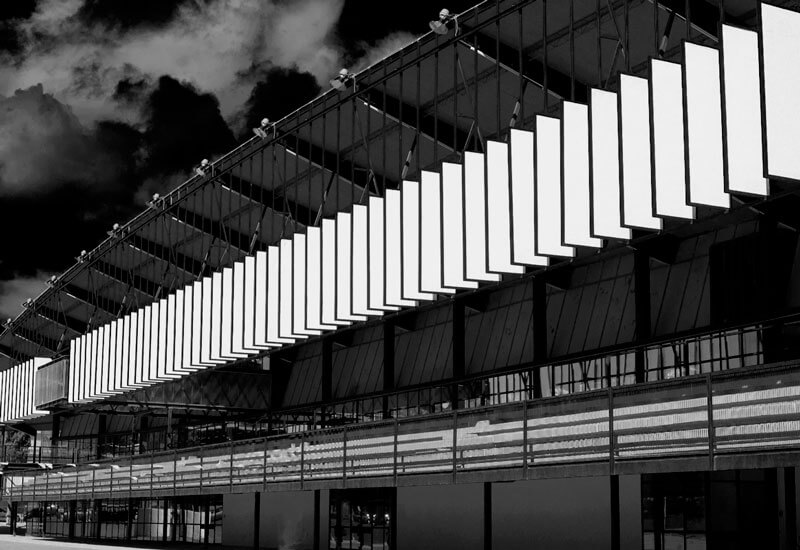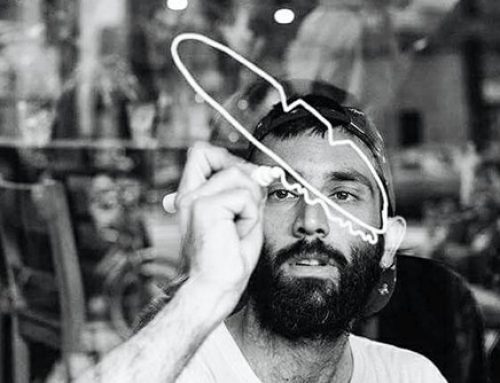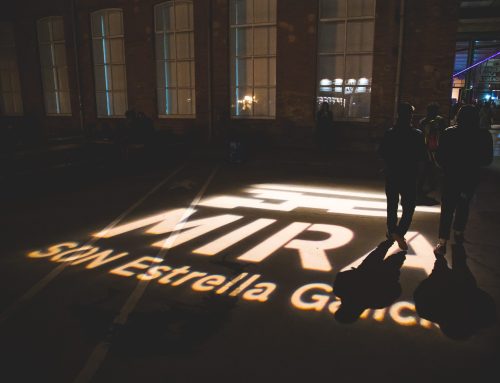Simón Lee, one of Barcelona’s rising tech gurus, has twice seen the future. His first vision was benevolent, the second tinged with dystopia. Following custom, here’s the good news-to-be: tiny robots, gifted with flight, speeding over the ground where greyhounds once chased an electric hare lap after lap.
It wasn’t a hallucination. Lee had his epiphany while showing off his company’s new home at Barcelona’s Creative Research Park housed in the city’s old dog track, el Canòdrom, a stone’s throw from Avinguda Meridiana in Sant Andreu. A decade after the track closed, Lee wants the races to return, this time in the form of airborne drones instead of panting pooches.
“I looked out and imagined a couple of thousand people coming to watch,” Lee said recently in the Canòdrom’s stands, where for 40 years locals came to watch – and bet – on the dog races. As he spoke, he looked out on what remained: a dirt lot where run-of-the-mill mutts, dragging their owners behind, use the toilet. “We see this plaza and we see the history of the dog track. When people came to bet they could look at the dogs and see their number and place their wagers. Then they watched the race. There was a culture behind all this. I think a correct evolution of this place would be to hold races with drones here.”
Lee is a managing partner of Incubio, a start-up incubator chosen by Barcelona’s town hall to help push the transformation of the city’s economy. Incubio has helped over 100 baby technology companies get on their feet, and now Lee is leading its effort to delve into the world of drones. Earlier this year, Incubio moved into the spruced-up offices of the dog track, whose elegant sloping roof and sleek 1960s design grace the otherwise dull surroundings. Incubio is reviewing applicants for its “Reimagine Drone” program. In February it will announce the three teams that will come to the ‘drom to develop their drones.
Like the startups that Lee fosters, his plan for holding drone races is in the embryonic stage. Lee said that Incubio needs to present a detailed plan to city hall, and make sure the neighbors understand that it won’t mean closing the lot that serves as a local gathering spot. Lee said his intention is “to use a temporary structure, putting up a net.”
The net that would prevent errant drones from flying off-course is not just a good idea, it would also be legally required. Spain only allows drones to be flown in closed spaces, among other restrictions. Lee said that talks with city hall were going slowly, but that he believed the idea would work towards mayor Ada Colau’s goal to draw people away from the saturated city center. “It would be the first municipal ‘dronódromo’ in the world,” Lee said. “To decentralize Barcelona you have to have character and do truly unique things. This would put the neighborhood on the map.”
But for Lee, a 39-year-old Figueres native who calls Barcelona home, there is another, potentially darker side to the city’s move toward tech. He said that Barcelona has succeeded in becoming a magnet for the world’s growing class of young, highly educated, “have laptop, will travel” techies. While giving the local economy a sorely needed alternative to tourism, this phenomenon, he warns, could bring undesired consequences, including the rise of real estate prices. “In New York, if you want to have a start-up with three people, we are talking about half a million dollars a year,” he said. “Here, with 50,000 euros, you can start doing things. That makes [Barcelona] very attractive. But what is happening? There is beginning to be competition for higher salaries, competition over talent, and that can be dangerous.”
The revving up of the tech industry, according to Lee, could create a class division between what he called the “digital class” and all the rest still in analogue mode. Lee gave the example of San Francisco’s soaring property costs and unchecked homelessness, which has provoked a backlash from residents: “Twitter bought a building in downtown San Francisco and the bus that carries its employees to work has had rocks thrown at it.”
Lee told of a young American tech entrepreneur who had made big bucks selling off his start-up. He then came to Barcelona to see if we wanted to move here or to Berlin. He rented (through Airbnb, of course) apartments in six different neighborhoods for one month each. And he was stunned by what he found. “He told me that in Gràcia he saw children in the streets, old people dancing in squares on Sunday,” Lee said. “It seemed incredible to him because in San Francisco everyone is a young adult. There are no old people or kids.”
“I don’t want to be catastrophic,” Lee said. “I think Barcelona’s city government is making efforts to keep a correct balance. What I do know is that the city hall doesn’t want Barcelona to become Venice. But I would also add that we don’t want to become San Francisco either.”








